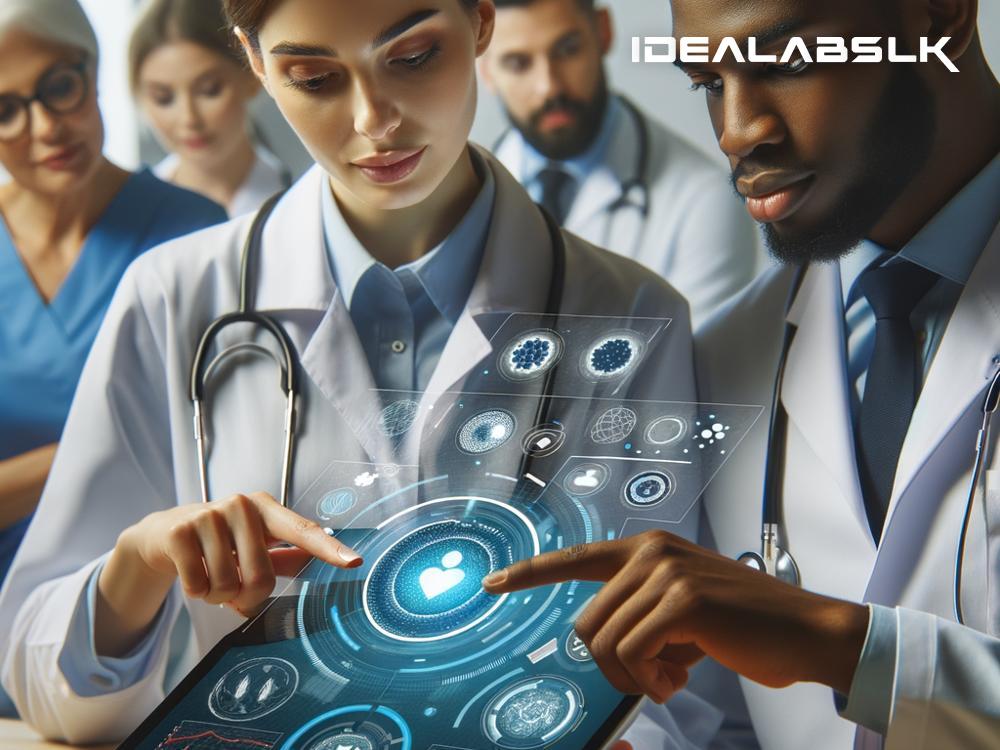How AI is Revolutionizing Healthcare: The Role of Machine Learning in Diagnosis and Treatment
In the world of healthcare, a quiet but powerful revolution is taking place. Artificial Intelligence (AI), specifically through Machine Learning (ML), is transforming how doctors diagnose and treat diseases. It's like having a super smart assistant that never sleeps, tirelessly working to keep us healthy. For those new to these terms, AI refers to computers designed to mimic human intelligence, and Machine Learning is a subset of AI where machines learn from data, improving their accuracy over time without being directly programmed.
Here’s how AI and Machine Learning are changing the game in healthcare:
Faster and More Accurate Diagnoses
One of AI's most significant impacts is its ability to make quick and precise diagnoses, often catching things the human eye might miss. For instance, AI algorithms can analyze X-rays, MRI scans, and other images, spotting signs of diseases such as cancer at their earliest stages. This speed and accuracy can sometimes be life-saving. ML algorithms, trained with thousands of images, learn to detect abnormalities with a level of precision sometimes surpassing even experienced radiologists. This doesn’t mean AI is replacing doctors but rather giving them a powerful tool to make better-informed decisions.
Personalized Treatment Plans
AI goes a step further by helping in designing treatment plans customized to the individual. Every patient is different, and what works for one might not work for another. By analyzing data from various sources, including medical records and genetic information, AI can suggest treatments that are most likely to be effective for a particular patient. This approach, known as precision medicine, ensures that patients receive care tailored specifically to them, potentially improving outcomes and reducing side effects.
Predictive Analytics for Preventive Healthcare
Prevention is better than cure, and AI is making significant strides in predictive analytics. By analyzing vast amounts of data, ML algorithms can identify patterns that may indicate a risk of developing certain conditions in the future. This means doctors can advise patients on lifestyle changes or start treatments that could prevent diseases from developing in the first place. Imagine being told you’re at risk of diabetes and changing your diet to avoid it; that’s the kind of proactive healthcare AI is enabling.
Enhancing Drug Development
Developing new medications is a long and costly process, but AI is helping to speed it up. By analyzing complex biological data, AI can predict which drug compounds might be effective against certain diseases. This can significantly reduce the time and expense involved in discovering new drugs, potentially bringing life-saving treatments to patients faster than ever before.
Improving Patient Care with Chatbots and Virtual Health Assistants
AI isn’t just about behind-the-scenes data analysis; it’s also directly interacting with patients through chatbots and virtual health assistants. These AI-driven tools can provide patients with instant responses to health-related queries, remind them to take their medication, or even alert doctors if a patient’s condition worsens. This constant, accessible support enhances patient care and engagement, contributing to better health outcomes.
The Challenges and Future Perspectives
Despite its potential, integrating AI into healthcare doesn’t come without challenges. Privacy concerns, data security, and the need for large, diverse datasets to train algorithms are significant hurdles. Furthermore, there's the need for regulatory frameworks to ensure AI applications in medicine are safe and effective.
However, the journey of AI in healthcare is just beginning. As technology advances and more data becomes available, AI’s role will only grow, offering incredible opportunities to enhance diagnosis, treatment, and preventive care.
In a nutshell, AI and Machine Learning are not just futuristic concepts but present-day realities making healthcare more efficient, personalized, and accessible. While we're still navigating the challenges of this digital health revolution, the potential benefits for patients and medical professionals alike are undeniable. The integration of AI in healthcare is a testament to human ingenuity, promising a future where diseases are diagnosed in the blink of an eye, treatments are tailored to our unique genetic makeup, and preventive care is a step ahead of disease. In this future, AI is our ally, ensuring longer, healthier lives.
So, next time you hear about AI and Machine Learning in healthcare, know that it's more than just tech jargon. It's a promise of a healthier tomorrow, powered by smart technology that learns, predicts, and cares.

